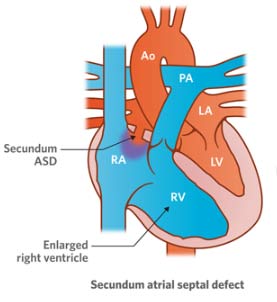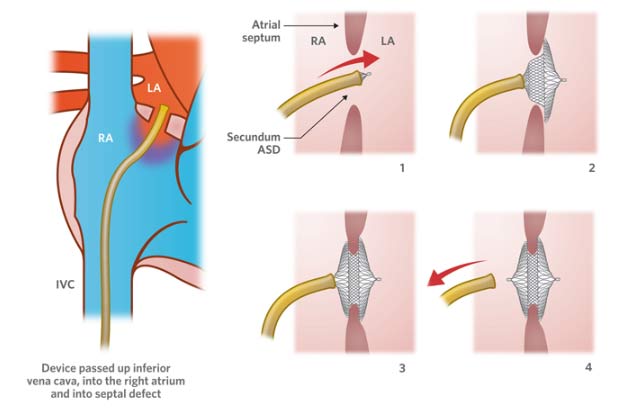Atrial Septal Defects (ASD)
Occurring in about 25% of children born each year, Atrial Septal Defects (ASD) are one of the most common congenital heart defects.
What is an Atrial Septal Defect (ASD)?
An atrial septal defect is sometimes referred to as a hole in the heart. It is a type of congenital heart defect in which an abnormal opening is present between the upper chambers of the heart.
An atrial septal defect can be left untreated and monitored. However, if symptoms present then treatment may be required to repair and close the opening.


What are the symptoms of Atrial Septal Defects (ASD)?
The symptoms of atrial septal defect may include:
- Shortness of breath, especially when exercising,
- Fatigue,
- Swelling in your legs, feet, or abdomen,
- Heart palpitations or skipped beat,
- Stroke, and
- Heart murmur.
What is the treatment for Atrial Septal Defects (ASD)?
You will be guided by our specialist Doctors at Newcastle Heart to the most suitable treatment.
Atrial Septal Defect (ASD) Closure
An atrial septal defect (ASD) closure is when a catheter is passed through a vein from your groin into the right side of your heart. A wire is passed across the hole, and a device is then placed and positioned across the hole.
An echo will be performed after the procedure.
Speak to our Doctors at Newcastle heart about treatment options that may benefit you.
